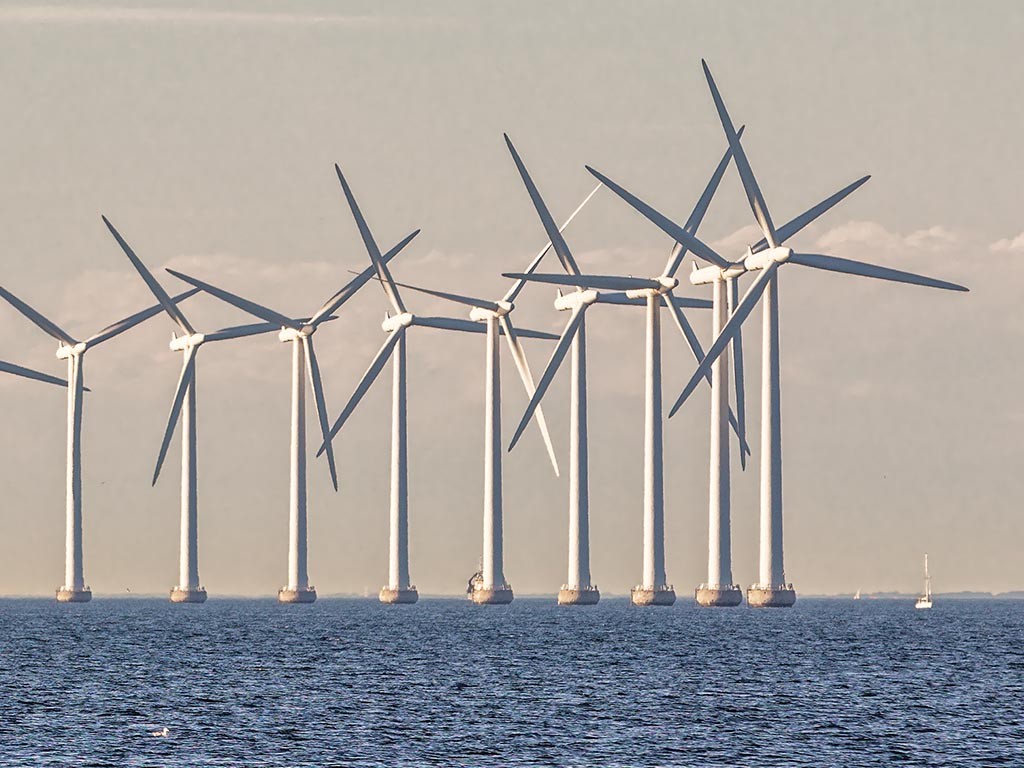Skills and Training for the Energy Industry of the Future
Skilled and trained workforce is critical to global energy supply now and will continue to be key in the energy transition as more renewable energy sources are being deployed around the world.
The right skill set and proper training or retraining can ensure smoother transition for both the energy industry and the employees.
Currently, there are skills gaps in data science and digitalisation in the energy industry, while another gap is emerging in the talent pool for the renewable energy industry. Oil and gas workers are generally paid more than those in renewables which does not help the clean energy sector attract skilled talent from the fossil fuels sector.
The renewable energy industry needs hundreds of thousands of skilled workforce if the UK, the EU, or the US have a chance to meet net-zero goals and install much higher solar and wind power capacity than they are currently having installed.
Safety and Skills
The keys to the UK’s vision for the energy industry in 2030 are safety, skills, and sustainability, according to Alex Spencer, Director of Operations at OPITO, the global skills body for the energy industry.
While the UK has a target of having 50 gigawatts (GW) of offshore wind installed by 2030, with up to 5 GW coming from floating offshore wind, oil and gas will continue to deliver the energy it needs, and in a more sustainable way, Spencer wrote in an opinion piece at the end of May.
“For us, safety is the number one issue in any vision of the energy industry’s future. It is essential to ensure that our workforce has the right training and that this training has safety at its core,” Spencer noted.
“Our health and safety record across high risk industries is now one of the best in the world. But we must never become complacent. Quite simply, we want to ensure that our 2030 energy workforce can continue to go to work and come home safely to their families.”
Skills and Net Zero
Earlier this year, OPITO and the Aberdeen-based National Energy Skills Accelerator (NESA) announced a partnership aimed at providing clarity and support to both the workforce and employers looking to maximise the opportunities presented by the energy transition.
NESA is a collaborative initiative between Robert Gordon University, the University of Aberdeen and North East Scotland College and is supported by key partners Skills Development Scotland and Energy Transition Zone Ltd.
“The collaborative Energy Skills Passport project is being delivered through a £5 million grant from the Scottish Government’s Just Transition Fund and aims to streamline the transfer of skills and address the lack of recognition of cross-sector skills,” OPITO said in February.
“The Passport will display an individual worker’s current qualifications and the required credentials to transition into another energy sector, supporting oil and gas workers move to another energy sector.”
John McDonald, CEO of OPITO, said,
“We recognise that there is much to do to streamline the skills landscape and ensure training is safe, effective and accessible to meet the demands of an integrated energy sector. Meeting this challenge will require renewed focus on collaboration and that is why our partnership with NESA is an important step to realising this ambition.”
Despite the higher skill requirements in most cases, jobs in renewables are not paying more than high-carbon jobs, which “is problematic for attracting workers into low-carbon jobs,” a study by London School of Economics’ Grantham Research Institute has found recently.
By comparing job vacancy data from the US and UK, the study found that across the US and UK, jobs in clean energy have greater requirements for technical, managerial, and social skills compared with other jobs. Low-carbon jobs require higher-level IT and cognitive skills too, which are also in high demand due to the ongoing digital transformation.
“The emerging skill gap resulting from the low-carbon transition is therefore larger and broader than previously considered,” the authors of the study noted.
Moreover, “The lack of a positive wage premium in recent years despite these jobs having higher skill requirements is problematic for attracting workers into low-carbon jobs,” according to the study.
Net Zero and Skills/Wage Gap
Across Europe, a skills gap could be a constraint in the energy transition.
For example, the WindEurope association said in April that the offshore wind workforce in Europe alone would need to grow from 80,000 today to 250,000 by 2030 if Europe wants to achieve its energy transition and offshore wind installation targets.
“Investments alone don’t manufacture blades, navigate vessels or operate wind farms. Above all, national Governments must support build up the necessary skills base,” the association added.
To address the shortage of talent, renewable energy trade associations and representatives of installers of clean technologies, with the support of the European Commission, have set up a large-scale skills partnership for the renewable energy industries.
In 2020, around 1.3 million people were employed in the EU renewable energy sector, but if the EU wants to meet its target under the REPowerEU plan, it will require the creation of over 3.5 million jobs by 2030, the European Commission said.
In the UK, the government is funding training courses and programmes to boost numbers of skilled retrofit, energy efficiency and heat pump installers.
In offshore wind, the UK has the advantage of an early-mover, but unless development and approval processes are sped up, and the skills and expertise of the existing offshore oil and gas workforce are transferred, the UK could lose this advantage, Offshore Energies UK’s Supply Chain and People Director Katy Heidenreich says.
“We must work together to engineer for a successful, sustainable energy future that not only builds on our current offshore energy skills, but harnesses our existing supply chain for a healthy, diverse energy future,” Heidenreich added.
The UK’s existing offshore wind workforce has increased to over 32,000, including more than 17,000 direct jobs and nearly 15,000 indirect jobs, a new report by the Offshore Wind Industry Council (OWIC) showed in June. In the short-to-medium term, a rapid growth in jobs is needed as several offshore wind farms progress to the construction phase – 88,509 jobs are forecast to be required by 2026, which is over 56,000 more than today’s workforce.
The industry will require 104,401 people by 2030 to meet current targets – an increase of 6,936 since last year’s forecast, OWIC says.
“To ensure we can meet the existing ambition, it’s essential for us to work right across our own industry, across adjacent industries with transferrable skills, and with the next generation, to make offshore wind an attractive career choice for people from the widest range of backgrounds and with a whole variety of different skill sets,” said Jane Cooper, Director of Offshore Wind at RenewableUK, commenting on the report.
Earlier this year, a survey by UK-based Energy Systems Catapult showed that there is a digital and data skills gap in the energy sector.
At least 40 percent of surveyed businesses in the energy sector found it difficult to hire data scientists with the skills needed to meet the challenges of a data-led future, the survey found. 39 percent of companies in the energy sector had teams of four or fewer data scientists, while 68 percent of the data science teams were created in the past five years.
Among data scientists, 95 percent believe the most common modelling technique implemented is forecasting.
Survey respondents highlighted the relative immaturity of the adoption of data science within the energy industry in comparison to other sectors such as FinTech, for example.
“This is despite an increasing need and demand for the technical skills and experience of data scientists to overcome the challenges faced by organisations in the pursuit of Net Zero,” Energy Systems Catapult said.
“We expect that as the opportunities from the energy sector become more evident, there will be a rapid uptick in organisations trying to build their data capabilities. We have already witnessed the gradual occurrence of this over the last five years, and as this is ramped up, it will put further stress on recruitment and training,” said Dr Stephen Haben, Digital & Data Consultant at Energy Systems Catapult.
“If we do not demonstrate the exciting challenges facing the industry or provide the necessary upskilling to the next generation of data scientists, then the energy industry risks losing out to other sectors such as social media and FinTech,” Haben added.
Read the latest issue of the OGV Energy magazine HERE
Published: 10-07-2023
#mc_embed_signup{background:#fff; clear:left; font:14px Helvetica,Arial,sans-serif; }
#mc-embedded-subscribe-form input[type=checkbox]{display: inline; width: auto;margin-right: 10px;}
#mergeRow-gdpr {margin-top: 20px;}
#mergeRow-gdpr fieldset label {font-weight: normal;}
#mc-embedded-subscribe-form .mc_fieldset{border:none;min-height: 0px;padding-bottom:0px;}
Marketing Permissions
OGV Energy will use the information you provide on this form to be in touch with you and to provide updates and marketing. Please let us know all the ways you would like to hear from us:
Direct Mail
Customised online advertising
Subscribe
(function($) {window.fnames = new Array(); window.ftypes = new Array();fnames[0]=’EMAIL’;ftypes[0]=’email’;fnames[1]=’FNAME’;ftypes[1]=’text’;fnames[2]=’LNAME’;ftypes[2]=’text’;fnames[5]=’MMERGE5′;ftypes[5]=’text’;}(jQuery));var $mcj = jQuery.noConflict(true);














